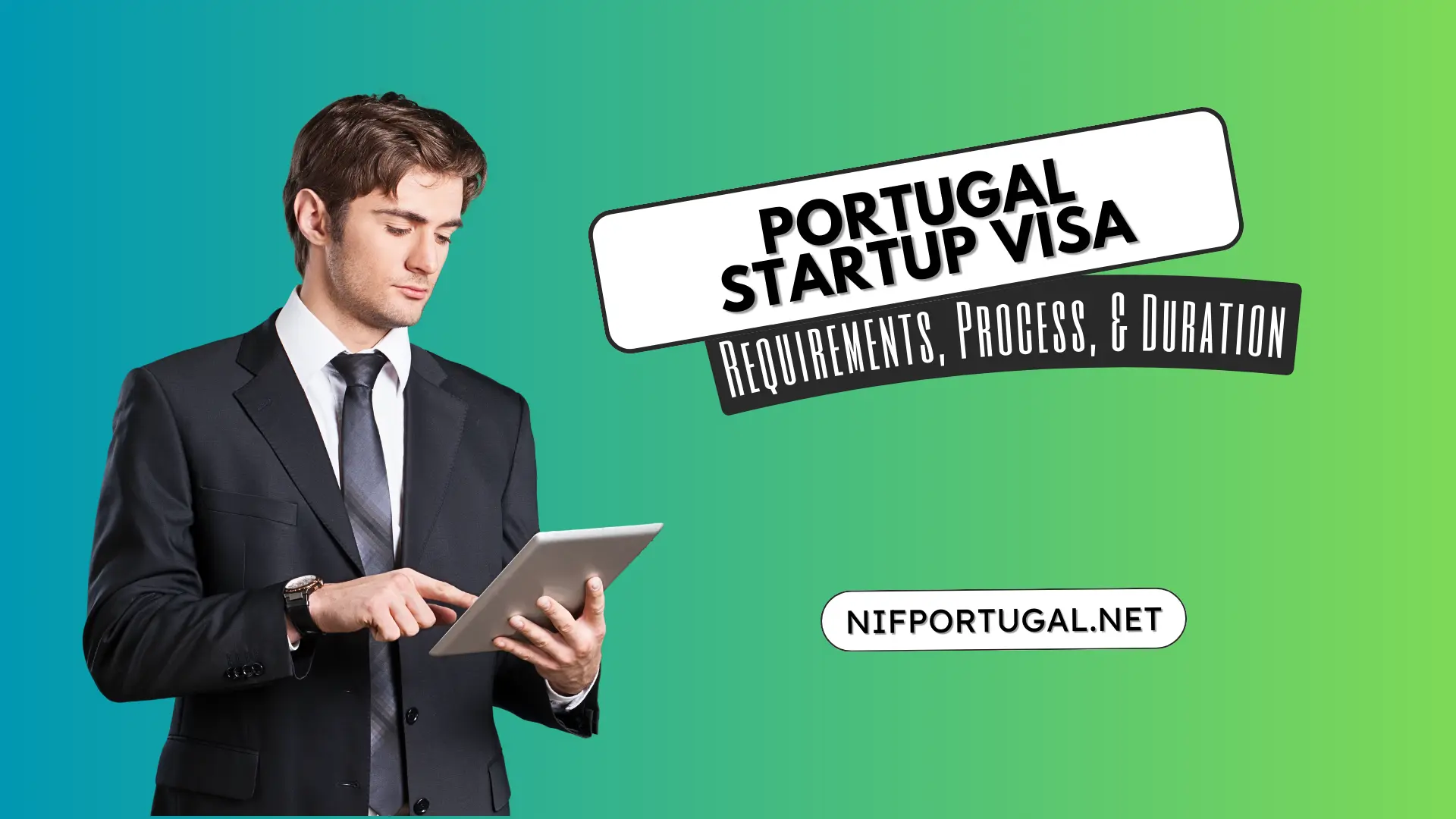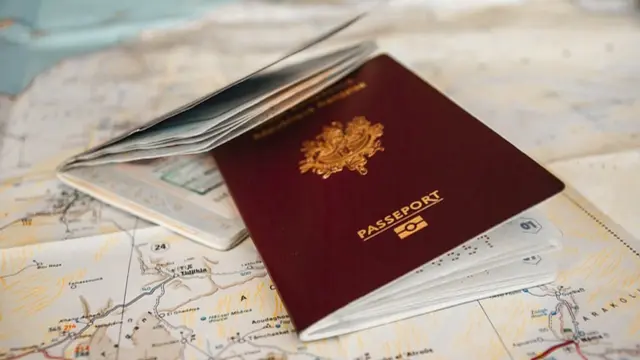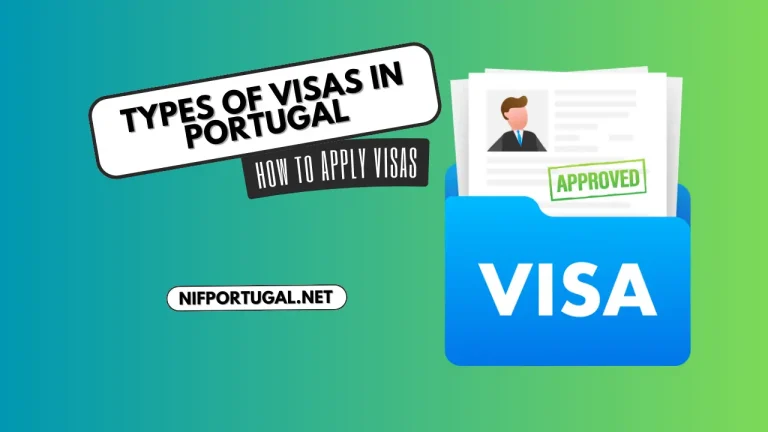Portugal Startup Visa in 2025 | Requirements, Process, & Duration

Portugal offers an appealing alternative for those wishing to start a new chapter from the baseline in their lives due to its welcoming climate and attractive visa programs. This is true whether the person is looking for a stay visa, wants to pursue commercial ventures, or wants to live a digital nomad lifestyle. This visa allows you to come to Portugal and stay there for a set period, allowing you to freely search for employment in a nation well-known for its friendly people and thriving job market.
Finding a job is not the sole objective; you should also fully embrace the vibrant Portuguese way of life in which life and work coexist. Also, obtaining a Portugal D2 Visa has several advantages, including living and working in Portugal. On top of all, this residence permit opens up a world of options in Portugal’s business world.
Considering this and the confusion on the internet, today I decided to pen down all the information I have as an expert in the industry. So, I will be covering the basic guidelines, the whole process, opportunities, and lastly, how I, as an expert, can help you with this. Better let’s begin down here!
What is the Portugal Startup Visa?
The Portugal Startup Visa is designed for business owners who want to start creative initiatives there. With unique ideas, young entrepreneurs from around the globe will have easy access to a residency visa that allows them to establish or relocate their enterprise to Portugal.
To obtain a visa, one must first apply to the IAPMEI, an organization that finances programs for business owners; after that, they must present a creative business idea and launch a startup with a Portuguese business incubator. A Portugal residency visa can be obtained through a Startup Visa.
Applicants must submit proof of a documented work proposal or work contract proving the importance and value of their services to Portugal to be eligible for a D2 Visa. People traveling to Portugal on a D2 Visa are allowed a four-month stay, during which time they must make an appointment with AIMA to get permission. Additionally, foreign investors may include family members and parents who depend financially on them when applying for permanent residence.
Types of Portugal Startup Visas
Two different types of Portugal startup visas are mentioned below:
1. Entrepreneur Visa
The first is the entrepreneur route, which is appropriate for people looking to start a new company in Portugal or grow an already established one.
To be eligible for the Portugal D2 Entrepreneur Visa, the following conditions must be fulfilled:

2. Independent Visa
The second method, the independent service provider route, is intended for independent contractors or freelancers supplying services to clients locally or internationally.
The following are the main features that you need to fulfill for the D2 Freelancer Visa:
Benefits of Portugal Startup Visa
Get the Residency
Holders of a Startup Visa can live in Portugal, a safe nation with a moderate climate, gorgeous scenery, and a good standard of living. However, to maintain the residency, you must stay in Portugal for six consecutive months or eight months each year.
Taxation
Entrepreneurs can get a 10-year favorable tax status as non-habitual residents after residing in Portugal for 183 days a year. It permits a person to avoid paying taxes on income earned overseas if that money is subject to double taxation in a nation with an agreement with Portugal.
Travel Visa-Free in Schengen Area
The Schengen Area is a region of Europe comprising 27 nations that have unified their visa policies and done away with internal border controls. It makes it easier for people to move freely by enabling citizens of states to move around the region without having their passports checked. Portugal residency permit holders can visit other Schengen states for up to 90 days within 180 days without needing to apply for additional visas. This could be quite valuable for investors or business owners who want to do business in the EU.
Apply for Citizenship

Once you have lived in Portugal for five years, you can seek to become a citizen. There’s a potential that doing business will improve your approval rate. This flexibility allows people to maintain their citizenship while benefiting from Portuguese citizenship.
It should be noted that obtaining citizenship often requires demonstrating A2-level Portuguese language ability. With a Portugal passport, you can migrate to another EU country and visit 187 countries. As Portugal allows dual citizenship, candidates are not required to give up their citizenship in other nations.
Start your Business
You must launch a startup in association with a reputable Portuguese business incubator to qualify for a Portugal Startup Visa. The incubator can ease the transition to working in a foreign nation. Aspiring business owners navigating the complexities of beginning a business in Portugal may find this collaboration simpler and easier, which can streamline a startup’s business and business management.
Family Reunion
Lastly, Portugal also permits family reunions thanks to the D2 Visa. This implies you can come to the country with your dependent family members, such as your parents, siblings, spouse, and kids.
How to Get a Startup Visa in Portugal? – Step-by-Step Guide
Step 1: Get the diligence Done
First, due diligence is done by a trained anti-money laundering officer before an entrepreneur signs a contract with Immigrant Invest. In other words, a certified anti-money laundering officer will conduct a first round of due diligence before an entrepreneur signs a contract with an immigration consultancy firm. By doing this check, we can detect potential issues and improve the investor’s prospects of obtaining a Portugal Startup Visa.
Step 2: Get the Documents Prepared
Candidates draft their resumes, motivation letters, and business proposals. You should have your bank statements proving you have enough money to live in Portugal and certifications proving no criminal records. Attorneys at Immigrant Invest assist applicants in obtaining social security and tax numbers in Portugal and compiling the required paperwork for the application.
Step 3: Get your NIF and Bank Account
Acquiring your NIF number (Número de Identificação Fiscal) is the first step you should take when starting the Portugal Startup Visa program, even before you start your Startup Visa application. For your new Portuguese business, you will require your NIF number, which is your tax contribution number.
Moreover, It’s simple to get and doesn’t require travel to Portugal. An agent can obtain your bank account and NIF number on your behalf. Setting up a Portuguese bank account is very simple and easy, making it one of the simpler tasks in the Portugal Startup Visa program. Naturally, opening a bank account is also necessary for your Portuguese business endeavors, as it will get you a residence visa in Portugal.
Step 4: IAPMEI Application
Now, you need to apply for IAPMEI; the project description, documentation, and application are all submitted electronically to the IAPMEI.
Step 5: Find an Incubator
Entrepreneurs must locate an incubator prepared to advance their project to obtain a visa. The candidates must visit multiple incubators and succeed in interviews to do this. After an incubator authorizes the proposal, the consulting business will help fill out the application on the IAPMEI website. After that, the application moves on to the last phase, pending approval. It will take some preparation, research, and pitching to find a business incubator for your new Portuguese firm, which might result in a resident permit and permanent residency.
Step 6: Get the Visa
The applicant receives a declaration from the agency confirming their participation in the Startup Visa program. This is good for six months, during which one needs to apply for a visa at the Portuguese embassy in their home country and then show up at the immigration service (AIMA) office on the scheduled day. Additionally, a candidate with a Schengen visa may travel to Portugal and promptly send paperwork to AIMA.
Step 7: Apply for a Resident Permit
Having legal assistance with immigration matters helps streamline this procedure. The investor’s attorneys can schedule a meeting with AIMA, the Portuguese immigration office, so that the investor can submit the required paperwork to apply for a residence visa.
Step 8: Receive your Residence Permit
A residence card is issued by AIMA and sent to the investor’s address in Portugal upon approval of the application. The initial residency card has a two-year expiration date and is renewable for a third year. The investor may apply for Portuguese citizenship or permanent residence after five years.
Portugal Start-Up Visa Cost
Here is a detailed breakdown of the cost that you will need for a start-up visa!
Launching a Business
To launch your business, there isn’t a minimum investment requirement. For Portugal, an entrepreneur invests money in starting a new venture, moving their company to Portugal, or developing an existing one.
Living in Portugal
The cost of living in Portugal is necessary to verify that each candidate has enough money to live there for roughly €5,300 a year. An entrepreneur must also rent real estate in Portugal to obtain a registration address.
Government Charges
Regarding government charges, a D2 visa costs €90 per person, while a residency permit costs €85.05.
Extra Expenses to Think About
The investor is responsible for any expenses incurred, including legal services rendered and the cost of an appointment with Portugal’s immigration office. The applicant must also have health insurance to access Portugal’s private healthcare system. The price of healthcare plans varies from person to person, but on average, private health insurance in Portugal can cost up to €1,000 annually for each individual.
What kind of Company Could be Considered for a Startup Visa?
Primarily, people choose to move their current business to Portugal or form a new firm to be eligible for a Startup Visa. In such cases, working with a Portuguese business incubator is a must, and those projects require the following prerequisites:
How can we help you?
If you are still confused about which company to choose, here is the opportunity for you! Meanwhile, a Portuguese tax identification number, also known as a Número de Identificação Fiscal or NIF, is necessary if you are moving to Portugal.
For that, we can be the partner you turn to when you want the procedure to run as easily and smoothly as possible. Most importantly, getting your NIF number in Portugal is 100% safe and secure when you work with us. So, why miss out on a golden opportunity? Get yourself registered now






